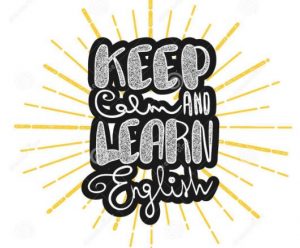 You might’ve heard English is one of the easiest languages to learn but it doesn’t mean it isn’t complex and I’m here today to show you some examples of how brain-busting it can actually get. Bear with me – you’re going to be here for a while, but I promise you, it’ll be worth it.
You might’ve heard English is one of the easiest languages to learn but it doesn’t mean it isn’t complex and I’m here today to show you some examples of how brain-busting it can actually get. Bear with me – you’re going to be here for a while, but I promise you, it’ll be worth it.
First of all – what you hear might not always mean what you think it does. You surely know what tongue twisters and homonyms are. Those are fun, huh? Trying to get a foreigner to say “stół z powyłamywanymi nogami” usually takes forever. It’s a common thing in English as well. I recall some dialogues from “Winnie the Pooh”, one of them being:
“Can you tie a knot?”
“I cannot”
“So you can knot?”
“I cannot knot”
“Not knot?”
“Who’s there?”
I’ve always found it hilarious.
Then, there are tongue twisters, like: “The thirty-three thieves thought that they thrilled the throne throughout Thursday”. It’s hard to say it quickly, not to mention memorizing the entire thing.
One of the things I struggled with the most when I was younger were words like tough, thorough, throughout, through, thought, though, and taught. They sound pretty much the same, or almost the same, right? Well, here’s a good tip for you if you, too, find it difficult to tell how to differentiate between them. Get a dictionary (looking up words in an actual book makes you remember them better, I promise!) and find each word. Check the translation, then come up with sentences with every one of them, like “I thought she was lying”, “I went out even though it was late” etc. Write them down on a piece of paper and reread them a few times a day. And boom! – after a few days you’ll no longer have a problem telling them apart!
I got to translate a few movies from English to Polish last year. Easy peasy lemon squeezy you might think, but let me tell you, it turned out to be a long process. Most of them were Australian movies and, as you probably know, English is a bit different depending on where it’s being used. There’s different vocabulary and accents.
I’m sure some of you use TikTok. There was a trend a while ago that was all about British vs. American accent. People were making fun of British people being like “I’m Bri ish”, “It’s chewsday, innit”, “Hey mate, bit rude to put that knoife in me chest innit,” or the most common one – “Peta Parka”.
And I’m telling you, once you hear Australian people talk, it will not be as hilarious but might still be hard to understand at times – more because of all kinds of slangs, which they use A LOT, than the accent, which isn’t so bad itself. There are quite well-known words, like “chook”, which, translated to English we know and use, means “chicken”, or “defo”, which means “definitely” and can often be seen on the internet, but there are also words like “galah”, which they use to refer to someone who they think is not a very bright person or “tucker”, which means food. They even have a plural form of “you”, which is just “yous” – you use it when talking to two or more people.
If you find learning languages difficult, just remember we can’t be good at everything. Being the easiest and most common language in the world, English is still developing, new words are being made up. Have you heard about Worcestershire sauce? Try saying “brobdingnagian” which, by the way, means “immense”. As if we couldn’t just call things “huge” or “enormous”.
Would you like to share what the most problematic thing is for you when it comes to improving your language skills?
Alicja Gibki, the author of this article, is our school’s graduate and a great enthusiast of English language. Thank you, Alicja! <3
